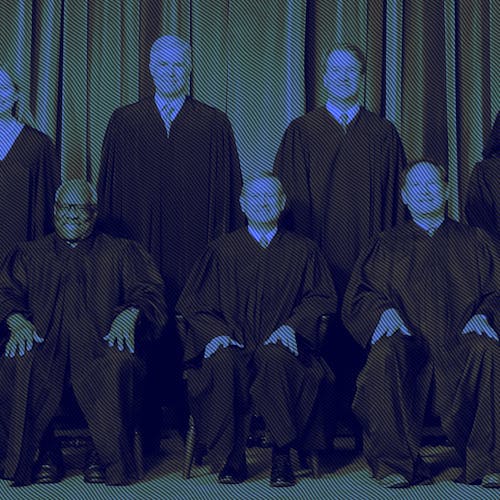SAJU: Attempting to define 'real' Americans is dangerous

Immigration is the blood that gives life to the governing body of the United States. Without it, America would have never developed into the nation that we know today and the flow of new ideas and perspectives would cease to exist. Generations of immigrants built this country with their hard work and determination to achieve the American Dream. Yet, we readily accept the narrative of the so called self-made man while forgetting that this land was taken from indigenous people and built on the backs of enslaved people.
So, what makes a real American?
This idea is a dangerous one. In fact, it shakes the very core of our nation because the construction of real or acceptable identities is contrary to what the United States stands for. The whole point of democracy is to honor the voice of each individual equally. It is unacceptable to believe that some Americans are more real than others.
Ninety-three percent of Americans prioritize the respect of American institutions as an important determinant in order to identify as American. Ninety-one percent of people prioritize American citizenship and 88 percent of people value accepting people of diverse backgrounds. The determination of a real American should not be based upon physical or personal markers. Your racial, cultural, geographical, political, social, religious, economic and sexual identities cannot determine your value and should not determine your citizenship.
By classifying people as other or unreal, we take away part of their identity. By questioning the citizenship of an individual, society makes them feel like an outsider in their own country. An individual who has had their native or adopted citizenship taken away is cast out from society as well as expelled from humanity, said political theorist Hannah Arendt.
The deprivation of citizenship is poison for democracy.
This reasoning is why we as a nation must choose to uphold and protect the Fourteenth Amendment, which guarantees citizenship to every person born or naturalized in the United States of America. In these politically tumultuous times, the validity of the Fourteenth Amendment has been questioned repeatedly. And these accusations boil down to the same questions: who is a real American and who is not? Who deserves to live here?
While the denaturalization process is difficult, the number of pursued cases has been growing. According to the U.S. Department of Justice, the number of cases averaged nearly 11 from 1990 to 2017, and there were significant increases in 2016 (rose to nearly 15 cases) and 2017 (rose to approximately 25 cases) that must be considered. As of July, 20 cases have already been filed. The removal of citizenship can be used as a politically motivated fear tactic, and there should be increased protections to secure the longevity of the Fourteenth Amendment. The idea that those in power can take away a part of someone’s identity is an unacceptable concept.
In order to protect democracy, the American people must choose to protect each other. We must discredit the idea of real Americans in order to defend the ideals of this nation. We are often considered a country by immigrants, for immigrants. While immigrants continue to stir our melting pot by bringing new ideas, cultures and perspectives, we often forget the first real Americans, the indigenous people. When speaking about real Americans, the people who lived here first are often treated as invisible. This is an unacceptable narrative. A real American understands that in order to move forward as a nation, there must be a shared desire to value each individual’s identity. A real American makes the choice to write a more inclusive narrative by choosing to defend their fellow citizens and by actively participating in the political system.
We are a government of the people, by the people, for the people. This means we should value each individual living in the United States of America, uphold the Fourteenth Amendment and remember to rewrite the narratives that fail to be inclusive. In order to do this, we must not question if we deserve to be here. Instead, we must question why we deserve to stay.
Neha Saju is a School of Arts and Sciences first-year student planning on majoring in political science and history and minoring in English
*Columns, cartoons and letters do not necessarily reflect the views of the Targum Publishing Company or its staff.
YOUR VOICE | The Daily Targum welcomes submissions from all readers. Due to space limitations in our print newspaper, letters to the editor must not exceed 500 words. Guest columns and commentaries must be between 700 and 850 words. All authors must include their name, phone number, class year and college affiliation or department to be considered for publication. Please submit via email to [email protected] by 4 p.m. to be considered for the following day’s publication. Columns, cartoons and letters do not necessarily reflect the views of the Targum Publishing Company or its staff.



